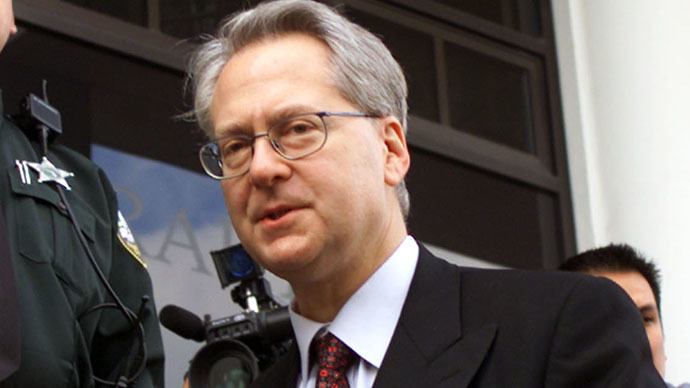The conservative American attorney who was awarded a partial victory against the United States National Security Agency in federal court on Monday claims that the NSA began harassing him since he filed suit.
In a memorandum released on Monday by US District Court Judge Richard Leon, lawyer Larry Layman was told he could have an injunction against the NSA’s bulk telephone data collection program pending the results of a federal appeal.
Klayman had sued the NSA and the US government at-large within hours of news breaking in early June that the government had compelled major telecommunications company Verizon and presumably others for the metadata — or basic call records — pertaining to millions of Americans on a regular basis.
Judge Leon wrote in his decision that during a November 18 preliminary injunction hearing, he asked Klayman if he or any of his co-plaintiffs had any “basis to believe that the NSA has done any queries” involving their phone numbers.
“I think they are messing with me,” Klayman told the court, according to Judge Leon’s memorandum from Monday.
Klayman told the court that “he and his clients had received inexplicable text message and emails, not to mention a disk containing a spyware program,” Leon wrote (page 39 below).

A transcript of that court hearing will not be made publically available until next year, according to the PACER electronic legal records database. Speaking to the website WND this week, however, Klayman opened up about the type of harassment he claims he was subjected to soon after taking the NSA to court.
“People began receiving from me emails that I had never sent,” the attorney told WND, or World News Daily — a right-leaning website based out of Washington, DC that Klayman has previously contributed to.
“The government just wanted me to know they were watching me,” Klayman claimed.
Judge Leon said he didn’t take those allegations into considering while making his decision this week, writing instead in his memorandum that “none of these unusual occurrences or instances of being ‘messed with’ have anything to do with the quester of whether the NSA has ever queried or analyzed their telephony metadata,” and therefore don’t give standing to Klayman or any of his co-plaintiffs.
Leon did, however, call the NSA’s bulk metadata collection program a likely violation of the US Constitution’s Fourth Amendment because, in his opinion, the collection and analysis of those records “almost certainly does violate a reasonable expectation of privacy.”
There was “strong evidence that, as Verizon customers, their telephone metadata has been collected,” Leon wrote of the plaintiffs, and as a result he agreed to grant his request for an injunction.
“The ruling by Judge Leon sets a very high bar if the government wants to continue NSA electronic surveillance of US telephone conversations until the government has a chance to appeal,” Klayman told WND after this week’s ruling. “The judge made it clear that the NSA activities were suspect under the Fourth Amendment, would not be well received and could result in additional damages.”
Indeed, Leon ruled that plaintiffs in the case of Klayman et al. v Obama must be removed from the NSA’s collection and analysis program and that the government must delete any records already obtained. Leon placed a stay on that ruling, however, knowing an appeal from federal officials would be imminent.
Moments after Leon’s memorandum was published, lawyers with the Department of Justice filed a motion asking the court to dismiss Klayman’s claims. In a public certification signed by US Deputy Attorney General James Cole attached to that motion, he wrote that the Section 802 of the Foreign Intelligence Surveillance Act provides immunity protection to Verizon in the Klayman case and other instances, and whether or not the plaintiffs have actually been spied on by the NSA is a classified matter that would “cause harm to the national security of the United States” if revealed “because it would identify the particularly statutory immunity provision under which the Verizon Defendants fall (and thus confirm whether or not the Verizon Defendants did or did not assist the intelligence community).”
Meanwhile, US District Judge William Pauley for the Southern District of New York is in the midst of weighing in on a similar lawsuit filed there by the American Civil Liberties Union immediately following the June 2013 revelations about the NSA made possible by top-secret documents leaked by former intelligence contractor Edward Snowden.
On Monday, ACLU attorney Jameel Jaffer wrote a letter to Judge Pauley referencing Leon’s decision from DC District Court, adding that the latest Klayman decision “concluded that the plaintiffs had demonstrated a substantial likelihood that the government’s ongoing bulk collection of their telephone metadata violates the Fourth Amendment” — exactly as the ACLU claimed when they filed suit six months ago.

